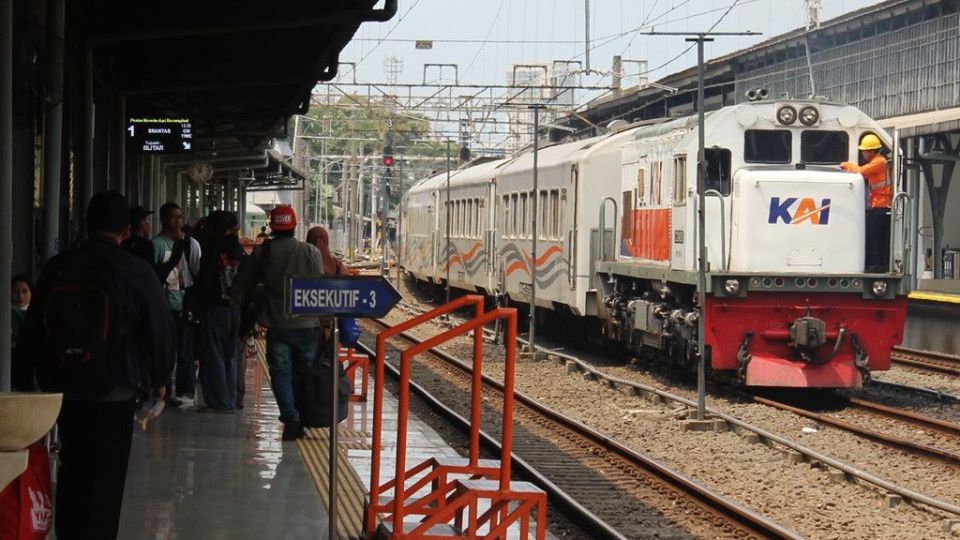July 24, 2024
JAKARTA – The Energy and Mineral Resources Ministry, in cooperation with state-owned railway operator PT Kereta Api Indonesia (KAI), kicked off on Monday a trial of 40 percent palm oil biodiesel (B40) to power the Bogowonto train connecting Pasar Senen Station in Central Jakarta and Lempuyangan Station in Yogyakarta.
Eniya Listiani Dewi, the ministry’s renewables director general, said the B40 biofuel trial aimed to test the durability of the train engine and was scheduled to last 1,200 hours, or 50 days.
“Today, we held a launch ceremony for the B40 [trial] in the railway sector,” she said on Monday, as quoted by Kompas.com, adding that the trial “would be deployed continuously” until its conclusion in December.
She expressed hope that the results of the trial would green-light the biofuel’s use in trains, “because we want B40 to be used soon”.
Indonesia’s biodiesel uses the highest proportion of palm oil in the world, and its B40 program aims to reduce the country’s reliance on imported diesel while ramping up demand for domestically produced vegetable oils.
The Oil Palm Plantation Fund Management Agency (BPDPKS) estimated on Jan. 31, 2023 that Rp 30.22 trillion (US$1.95 billion) would be needed to subsidize the distribution of biodiesel that year.
Following last year’s successful trial of B40 in four-wheeled vehicles, the series of trials planned for this year aim to assess its use in agricultural machinery and trains.
According to Eniya, the government then plans to expand the B40 trials to test the biodiesel in heavy equipment, shipping and power plants, the latter in Balikpapan, East Kalimantan, using an estimated total volume of 16 million kiloliters (kL).
“We expect the results [of the trials] for all of these sectors by December this year,” she said.
She also expressed confidence that despite the different standards and test periods for each sector, the technical instructions would be finished by the year-end toward rolling out B40 next year.
Eniya expected the mandatory B40 program to reduce annual emissions by up to 14.6 million tonnes of carbon dioxide in both the automotive and nonautomotive sectors, and save around US$9 billion in foreign exchange.
“The implementation of the biodiesel [program] is aimed at stabilizing palm oil prices, reducing the trade deficit and accelerating the use of our natural resources or agricultural sources” to benefit oil palm farmers, she added.
KAI vice president of logistics Suryawan Putra Hia said that its trains currently consumed B35 biodiesel at an annual rate of 300 million liters (3,000 kL).
“So far, there is no issue [with using biodiesel in trains]. In the future, perhaps the B100 will be a real challenge, but we are optimistic that the B40 will not have a significant impact on the engines,” Suryawan said on Monday, as quoted by CNN Indonesia.
Indonesia is the third-largest biofuel producer in the world after the United States and Brazil, according to the Statistical Review of World Energy 2022 by British oil and gas giant BP.
According to the report, Indonesia’s biofuel production reached 140,000 barrels of oil equivalent per day (boepd) in 2021, or around 8 percent of the 1.74 million boepd produced globally. The US and Brazil respectively produced 643,000 boepd and 376,000 boepd that year.


